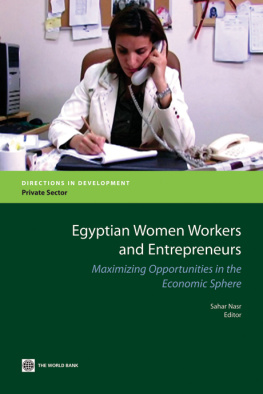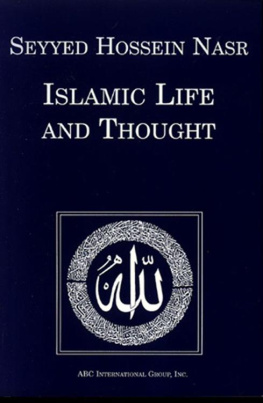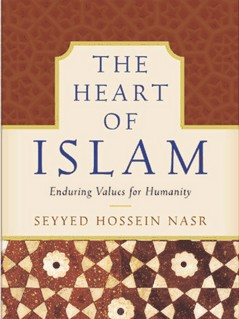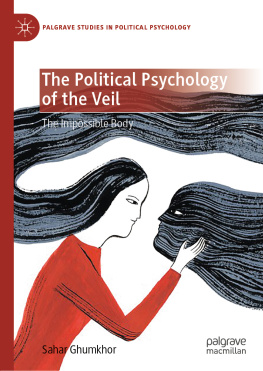Sahar Nasr - Egyptian Women Workers and Entrepreneurs
Here you can read online Sahar Nasr - Egyptian Women Workers and Entrepreneurs full text of the book (entire story) in english for free. Download pdf and epub, get meaning, cover and reviews about this ebook. year: 2010, publisher: The World Bank, genre: Romance novel. Description of the work, (preface) as well as reviews are available. Best literature library LitArk.com created for fans of good reading and offers a wide selection of genres:
Romance novel
Science fiction
Adventure
Detective
Science
History
Home and family
Prose
Art
Politics
Computer
Non-fiction
Religion
Business
Children
Humor
Choose a favorite category and find really read worthwhile books. Enjoy immersion in the world of imagination, feel the emotions of the characters or learn something new for yourself, make an fascinating discovery.
- Book:Egyptian Women Workers and Entrepreneurs
- Author:
- Publisher:The World Bank
- Genre:
- Year:2010
- Rating:5 / 5
- Favourites:Add to favourites
- Your mark:
- 100
- 1
- 2
- 3
- 4
- 5
Egyptian Women Workers and Entrepreneurs: summary, description and annotation
We offer to read an annotation, description, summary or preface (depends on what the author of the book "Egyptian Women Workers and Entrepreneurs" wrote himself). If you haven't found the necessary information about the book — write in the comments, we will try to find it.
Egyptian Women Workers and Entrepreneurs — read online for free the complete book (whole text) full work
Below is the text of the book, divided by pages. System saving the place of the last page read, allows you to conveniently read the book "Egyptian Women Workers and Entrepreneurs" online for free, without having to search again every time where you left off. Put a bookmark, and you can go to the page where you finished reading at any time.
Font size:
Interval:
Bookmark:

Maximizing Opportunities in the Economic Sphere
Sahar Nasr, Editor

2010 The International Bank for Reconstruction and Development / The World Bank
1818 H Street, NW
Washington, DC 20433
Telephone: 202-473-1000
Internet: www.worldbank.org
E-mail:
All rights reserved
1 2 3 4 13 12 11 10
This volume is a product of the staff of the International Bank for Reconstruction and Development / The World Bank. The findings, interpretations, and conclusions expressed in this volume do not necessarily reflect the views of the Executive Directors of The World Bank or the governments they represent.
The World Bank does not guarantee the accuracy of the data included in this work. The boundaries, colors, denominations, and other information shown on any map in this work do not imply any judgment on the part of The World Bank concerning the legal status of any territory or the endorsement or acceptance of such boundaries.
Rights and Permissions
The material in this publication is copyrighted. Copying and/or transmitting portions or all of this work without permission may be a violation of applicable law. The International Bank for Reconstruction and Development / The World Bank encourages dissemination of its work and will normally grant permission to reproduce portions of the work promptly.
For permission to photocopy or reprint any part of this work, please send a request with complete information to the Copyright Clearance Center Inc., 222 Rosewood Drive, Danvers, MA 01923, USA; telephone: 978-750-8400; fax: 978-750-4470; Internet: www.copyright.com.
All other queries on rights and licenses, including subsidiary rights, should be addressed to the Office of the Publisher, The World Bank, 1818 H Street NW, Washington, DC 20433, USA; fax: 202-522-2422; e-mail: .
ISBN: 978-0-8213-8190-8
eISBN: 978-0-8213-8191-5
DOI: 10.1596/978-0-8213-8190-8
Library of Congress Cataloging-in-Publication Data has been applied for.
Cover photo: Safaa Habib, the National Council for Women, Egypt
Cover design: Naylor Design, Inc.
Egyptian Women Workers and Entrepreneurs is a joint product of the government of the Arab Republic of Egypt and the World Bank. The report was initiated by a request from Dr. Mahmoud Mohieldin, Minister of Investment; Mrs. Aisha Abdel-Hadi, Minister of Manpower and Immigration; and Dr. Farkhonda Hassan, Secretary General of the National Council for Women.
Their request came at an opportune time. Egypt has made laudable progress in empowering women in society and in the economic sphere, but challenges remain. The World Bank Country Strategy praised Egypts progress in reducing gender disparities and closing gaps in education, health, and economic participation, but it also noted the need for continued work and committed to assisting the government through both analytical and project support. This book forms part of that commitment.
Supporting programs that contribute to womens economic empowerment is important, as a growing body of research demonstrates the benefits to society of empowering women. Recognizing this need, the World Bank Group launched the Gender Action Plan in 2007 to promote gender equality as smart economics. Since its inception, the plan has catalyzed activities such as this publication, both in client countries and across the World Bank Group.
The World Bank Group has been pleased to support the government of Egypt in identifying the obstacles facing women in the economic sphere. The main findings of this publication have already been integrated into the National Gender Strategy launched jointly by the World Bank, and the government of Egypt. We look forward to helping to implement this studys recommendations and hope this publication will increase attention to the role of women in the economy, ultimately contributing to leveling the playing field for women in Egypt, and maximizing their opportunities in the economic sphere.
Mayra Buvinic
Sector Director
Gender and Development
World Bank
Emmanuel Mbi
Director
Middle East and North Africa
World Bank
Zoubida Allaoua
Director
Finance, Economic, and Urban Development
World Bank
The Arab Republic of Egypt is undergoing significant demographic, social, and economic changes, including the roles of women and men. Opportunities and obstacles exist for women in the pursuit of education, livelihood, entrepreneurship, and old-age security. There is also wide scope for creative policy approaches to increase gender equity. Stemming from its belief that gender mainstreaming plays a vital role in development, the government has consistently expressed its commitment to integrating women fully into the development process.
The governments commitment to womens empowerment is strong at the highest political levels. Such commitment has been evident in identifying the empowerment of women in the Egyptian National Strategy; in mainstreaming gender in the Five-Year National Development Plan; and in establishing, by presidential decree, the National Council for Women (NCW), an official government body responsible for empowering women economically, socially, and politically and addressing their strategic needs by safeguarding their human rights. In his pledges during the 2005 presidential elections, President Hosni Mubarak highlighted the instrumental role of women in the development process.
Over the past decade, Egyptian women have witnessed significant progress in improving their status. New laws enable women to initiate divorce (khula) and to give Egyptian nationality to their children by non-Egyptian fathers. Specialized courts now hear all family-related issues, including custody and divorce. The first Egyptian woman judge was appointed by presidential decreea sign of womens increased clout in decision-making circles. And the Constitution was amended to allow for a quota of female parliamentarians.
A key priority area for the government is to empower women economically by enhancing their access to markets and finance and encouraging female entrepreneurship. Equally important are the provision of support social services and the establishment of healthy working conditions, so that women employees can participate effectively in the economic sphere.
Much remains to be done to translate economic reforms into real positive changes. Promoting an enabling institutional, legal, and regulatory environment for womens equal ownership and access to economic resources and assets such as land, finance, and property is essential for economic empowerment. Freeing women and their families from poverty requires strengthening their economic capacity as entrepreneurs, producers, and informal workers so that they can access and shape markets.
The progress and pace of these gender efforts have been commended at home and abroad. But challenges and impediments remain. The government will continue to foster efforts to mainstream gender in its national social and economic plan, as well as in the budget. We hope that the findings and recommendations of this report will assist in the ongoing endeavors to meet this challenge.
Mahmoud Mohieldin
Minister of Investment
Egypt
Aisha Abdel-Hadi
Minister of Manpower and Immigration
Font size:
Interval:
Bookmark:
Similar books «Egyptian Women Workers and Entrepreneurs»
Look at similar books to Egyptian Women Workers and Entrepreneurs. We have selected literature similar in name and meaning in the hope of providing readers with more options to find new, interesting, not yet read works.
Discussion, reviews of the book Egyptian Women Workers and Entrepreneurs and just readers' own opinions. Leave your comments, write what you think about the work, its meaning or the main characters. Specify what exactly you liked and what you didn't like, and why you think so.













